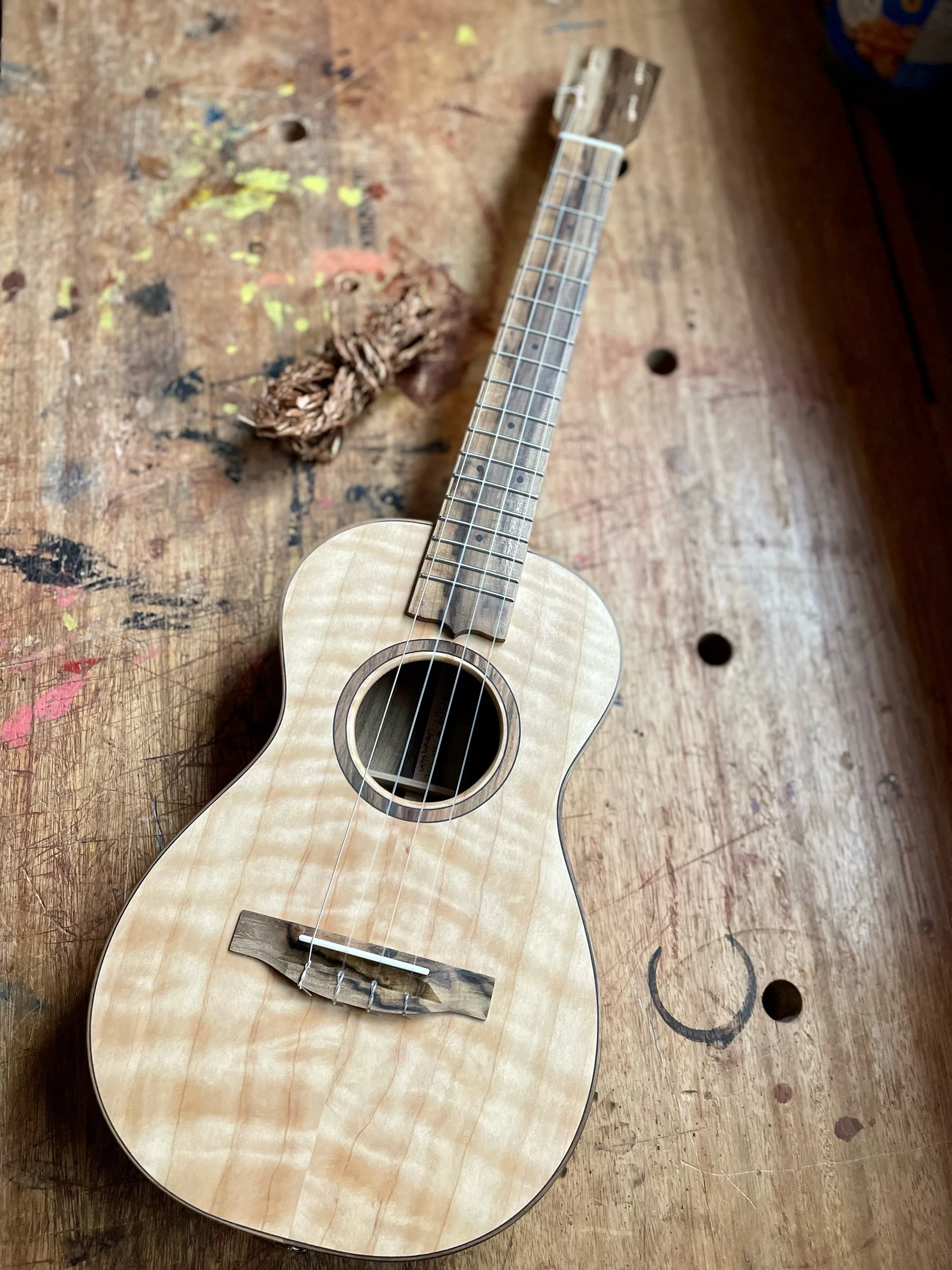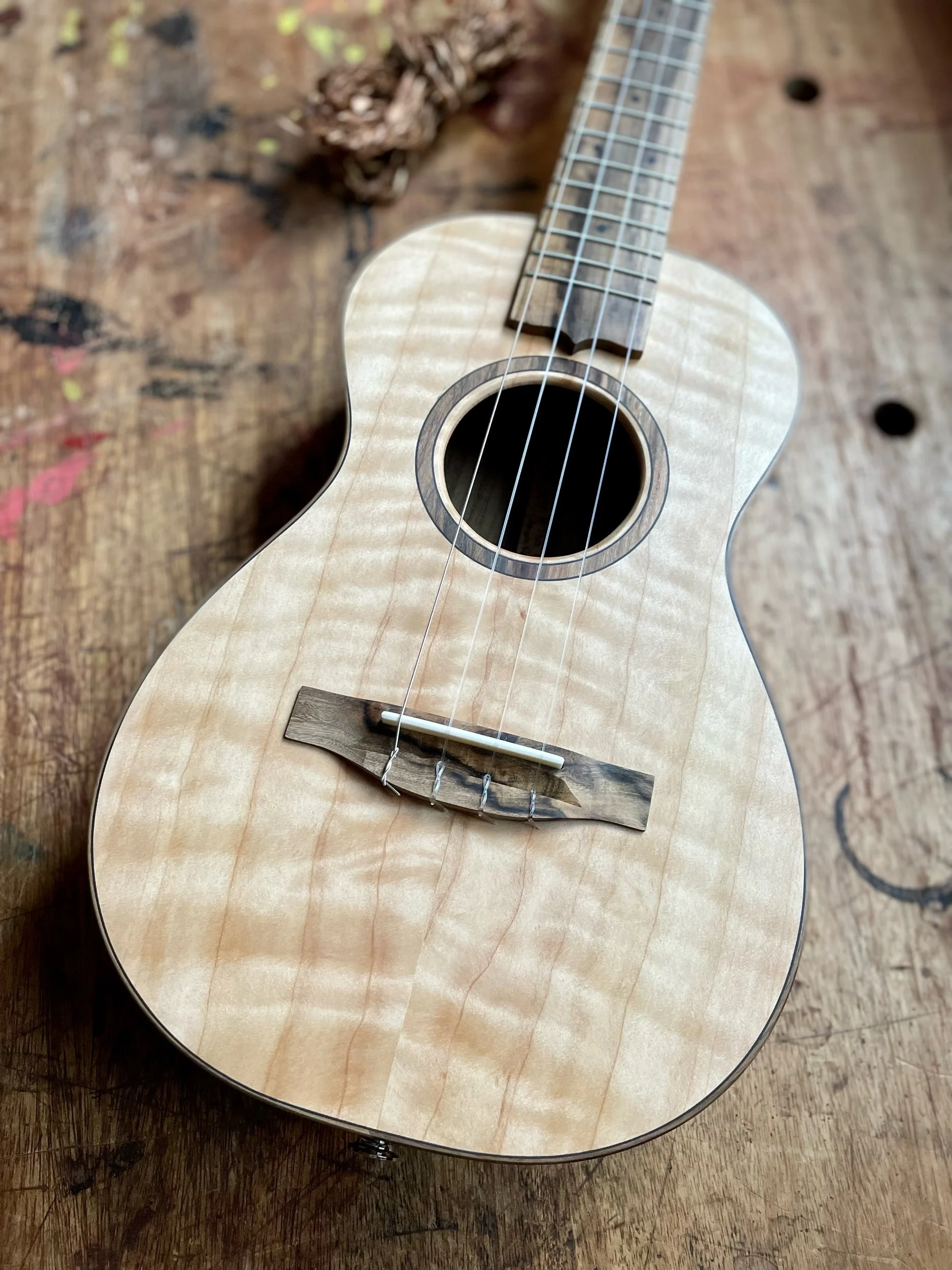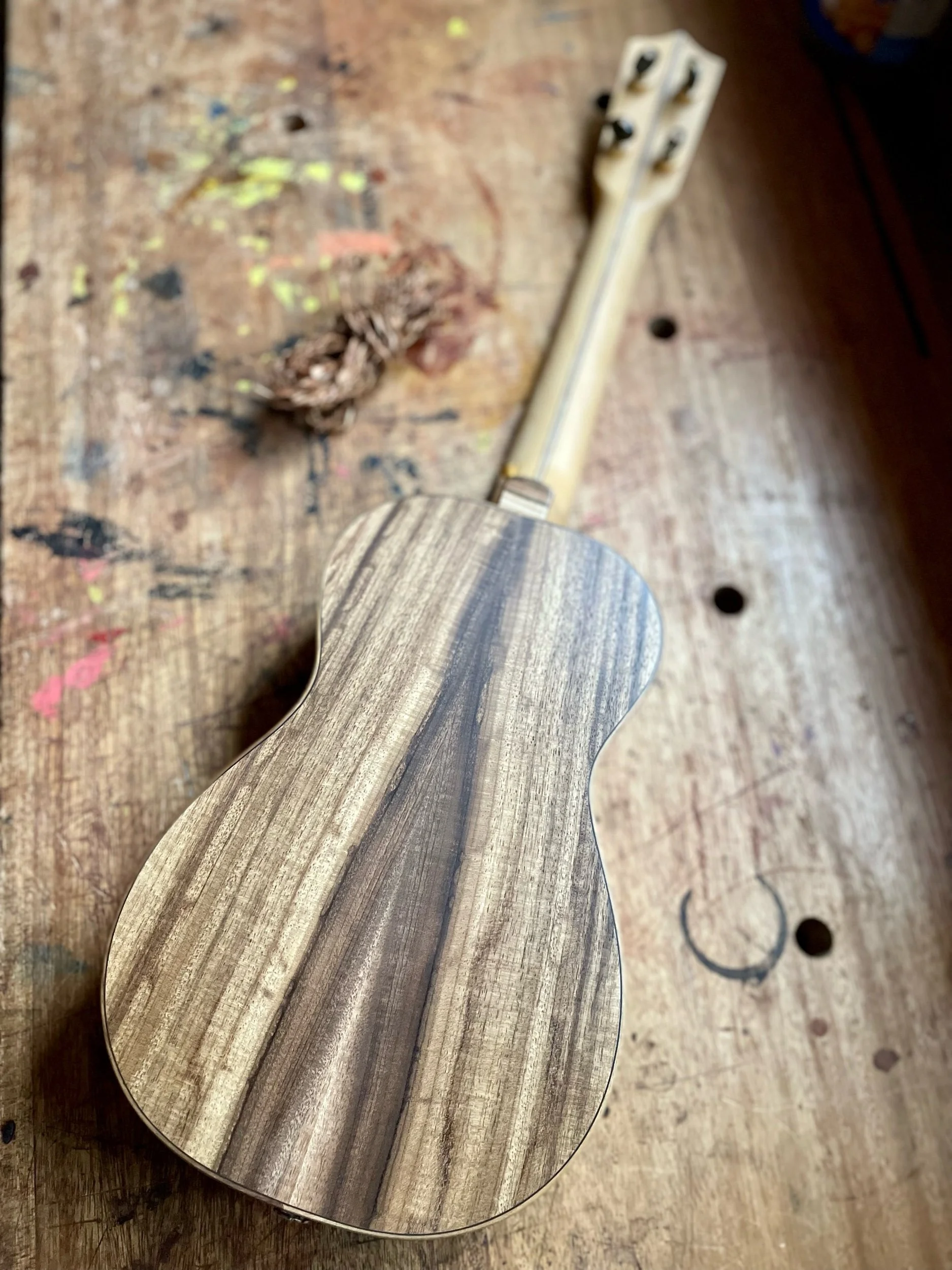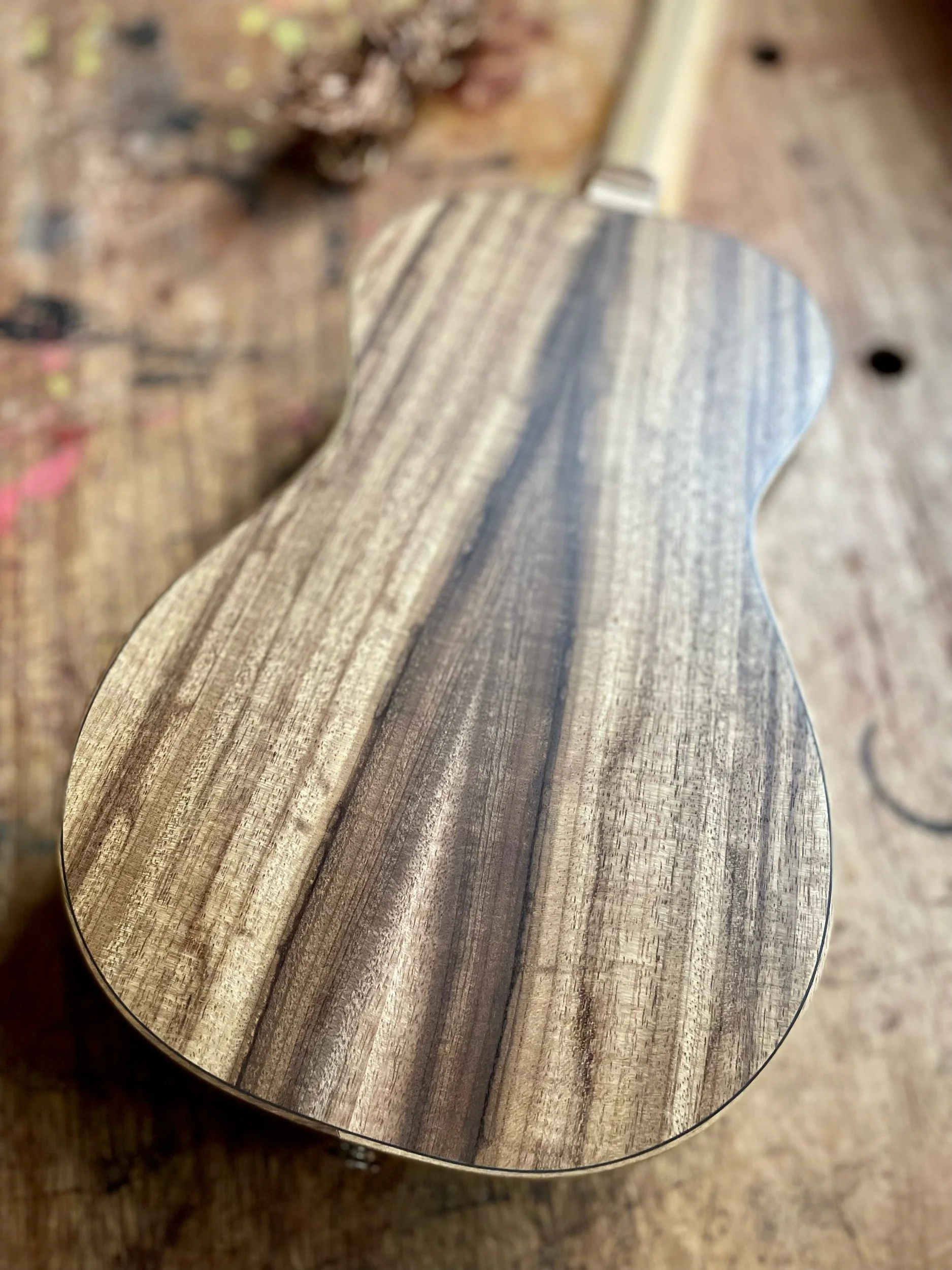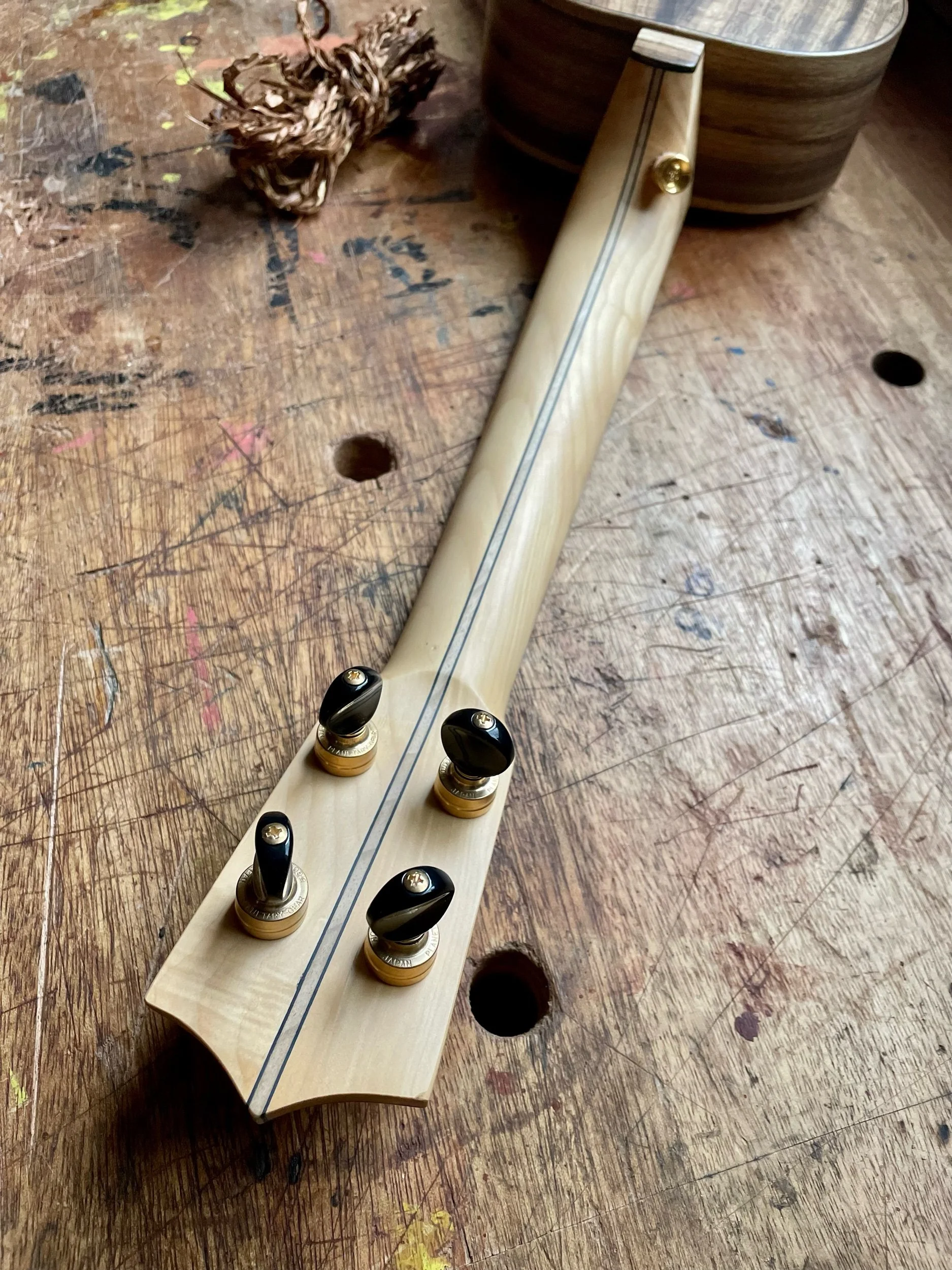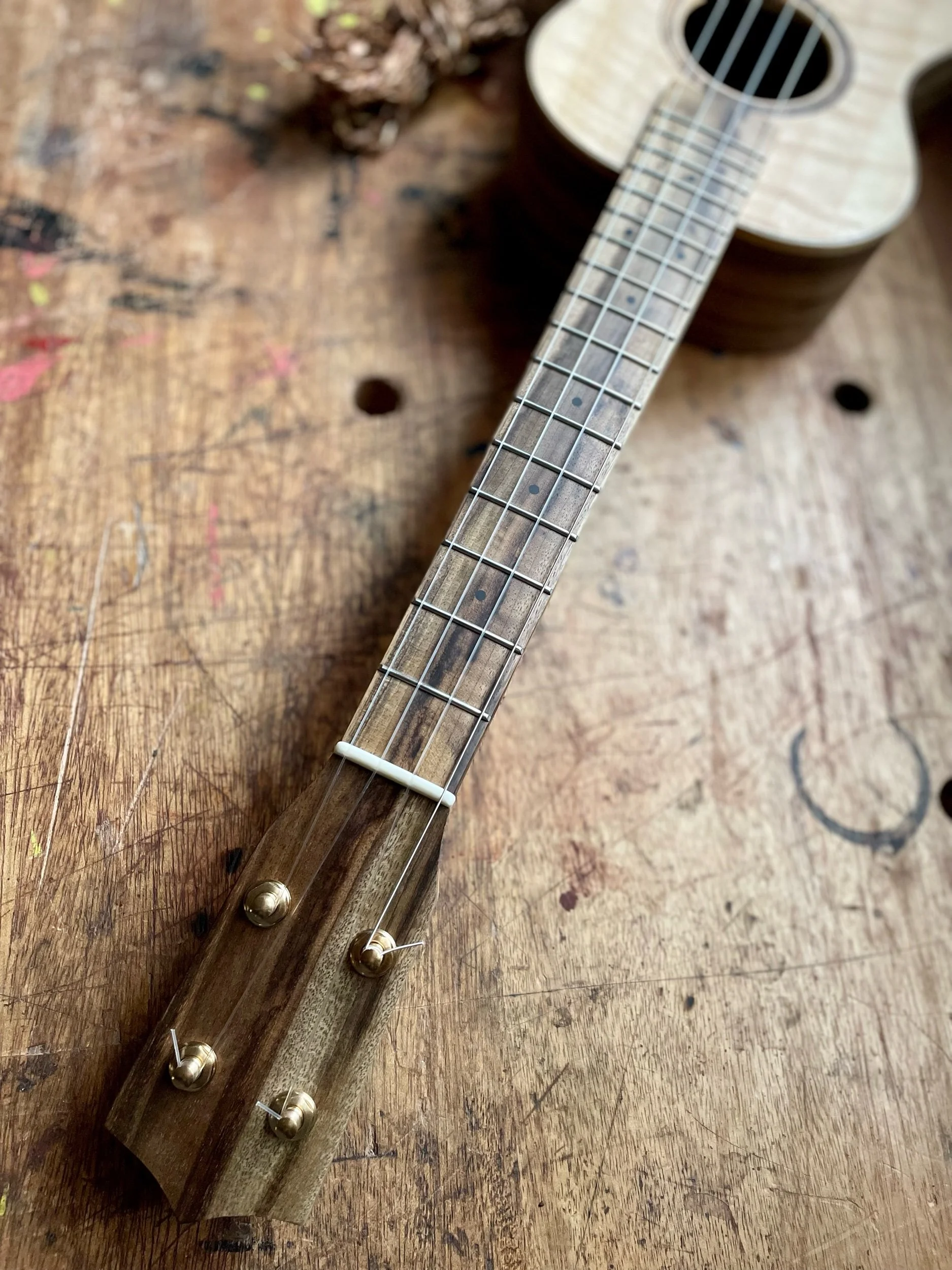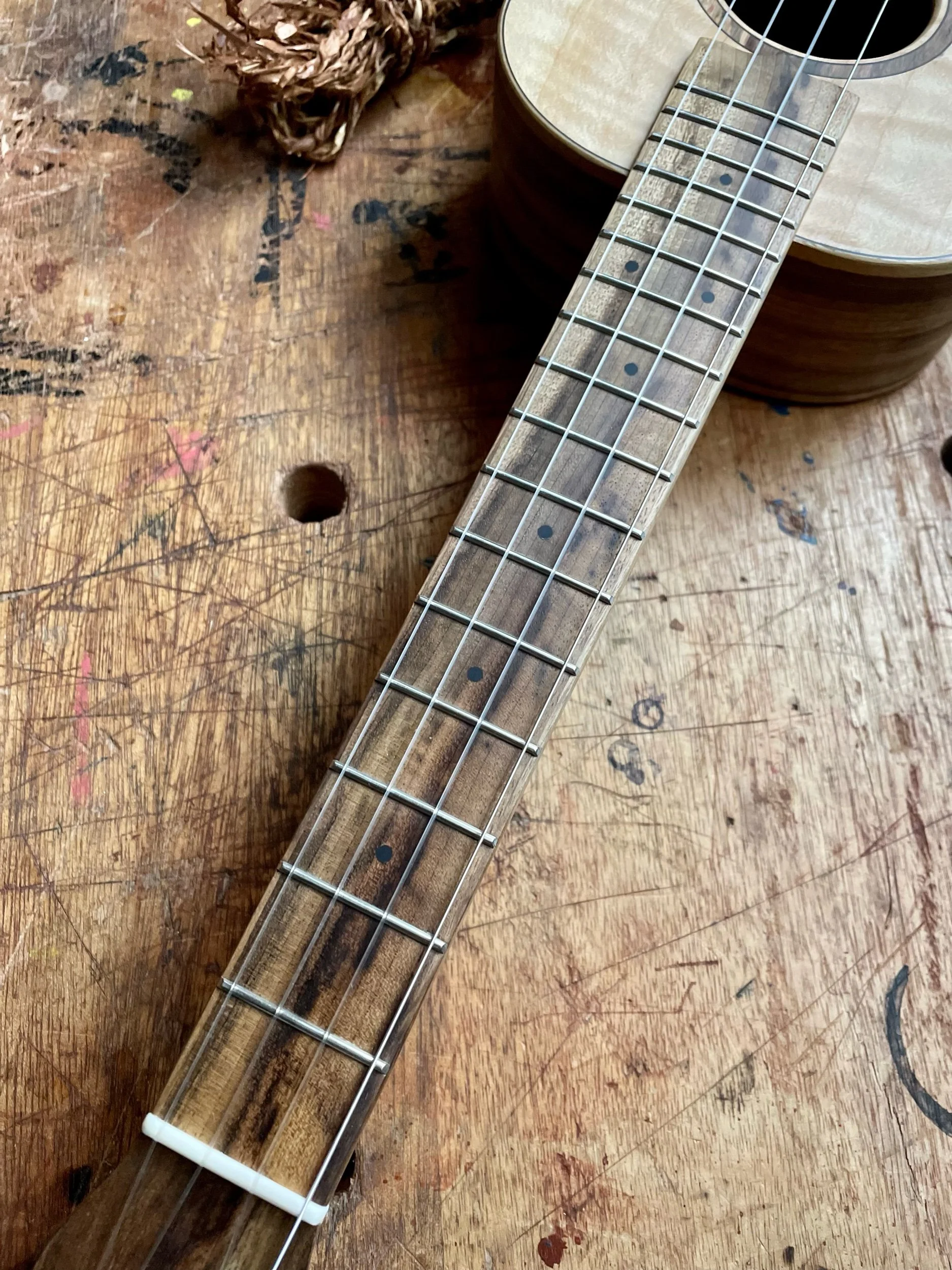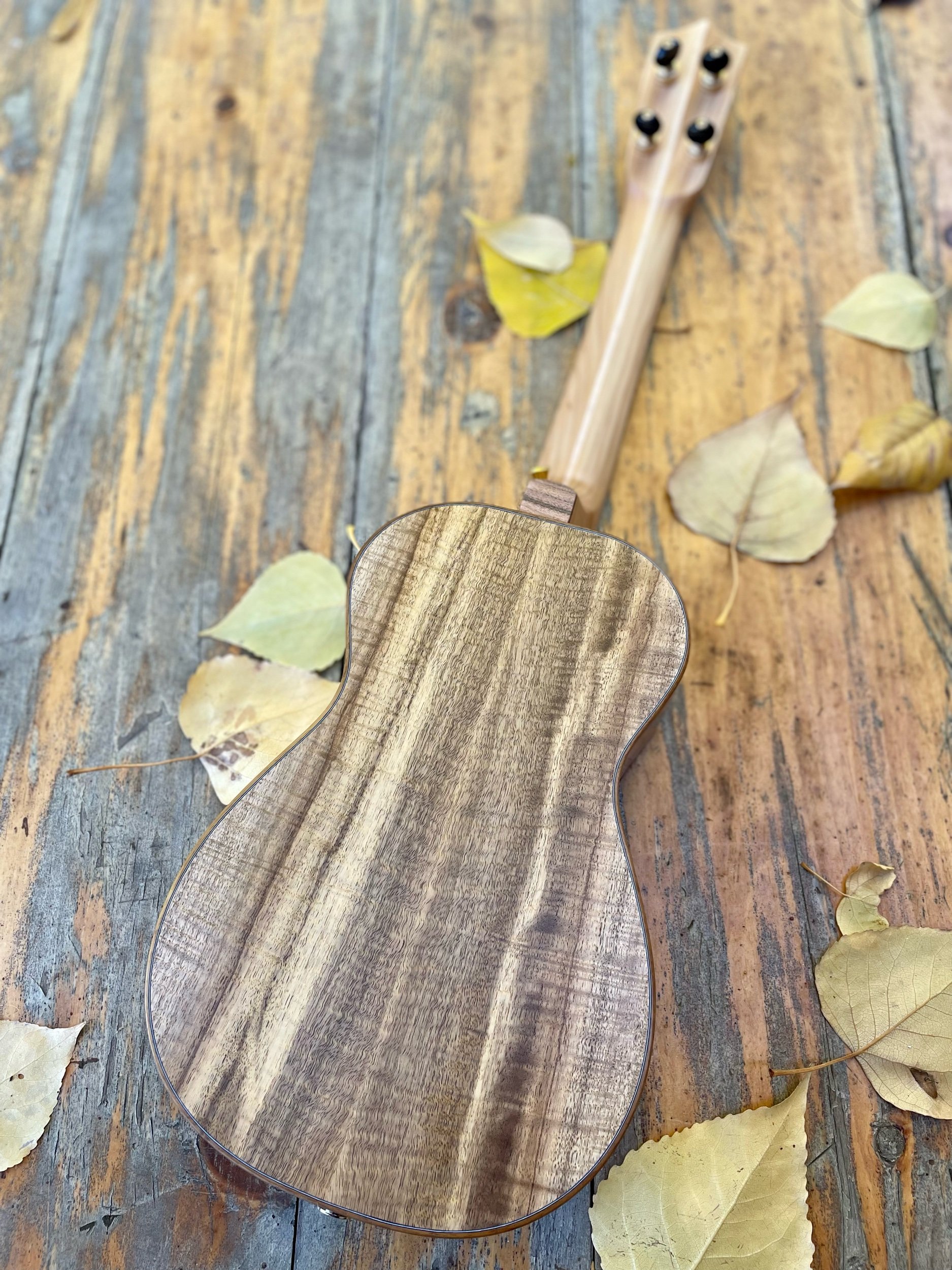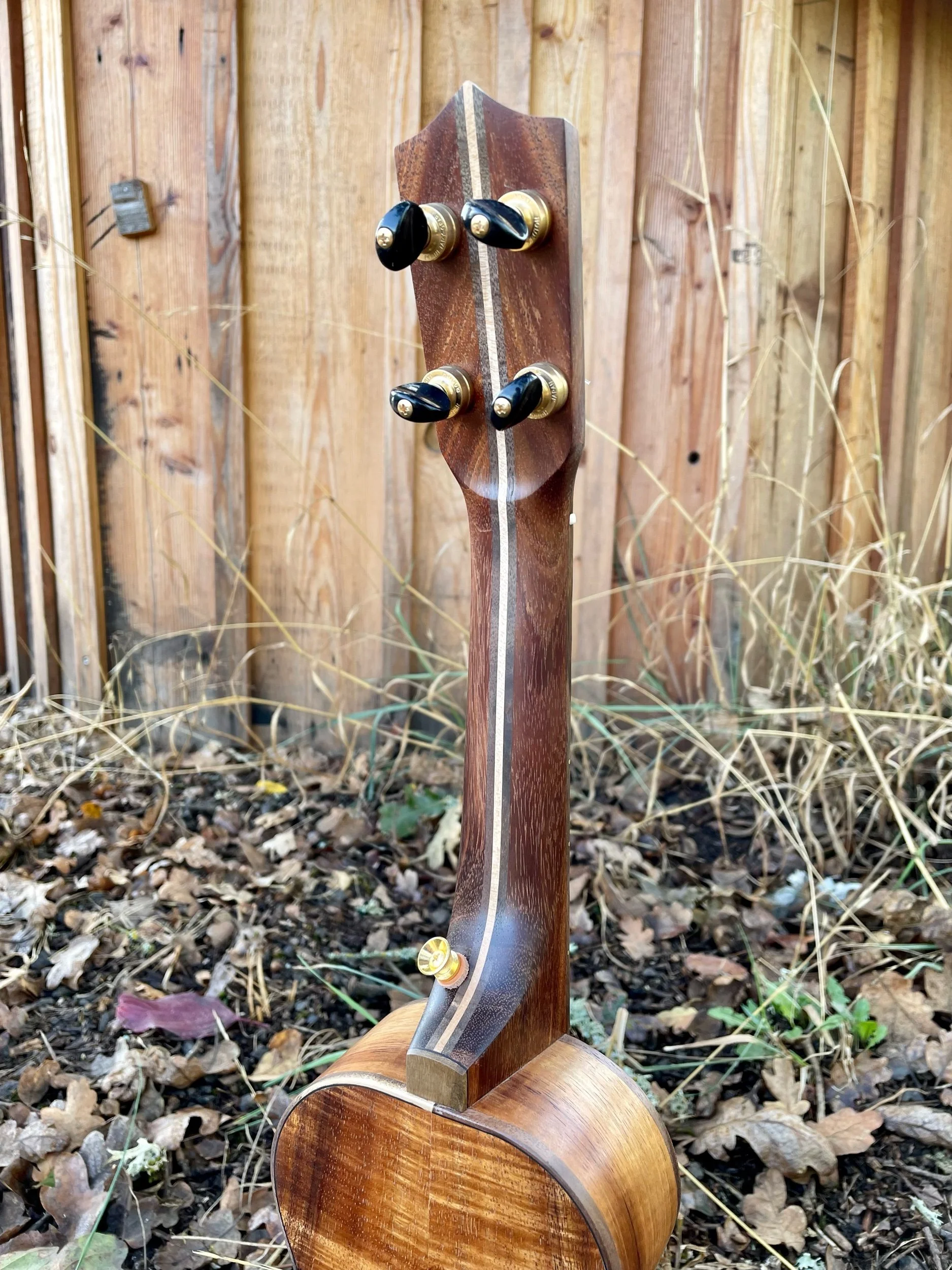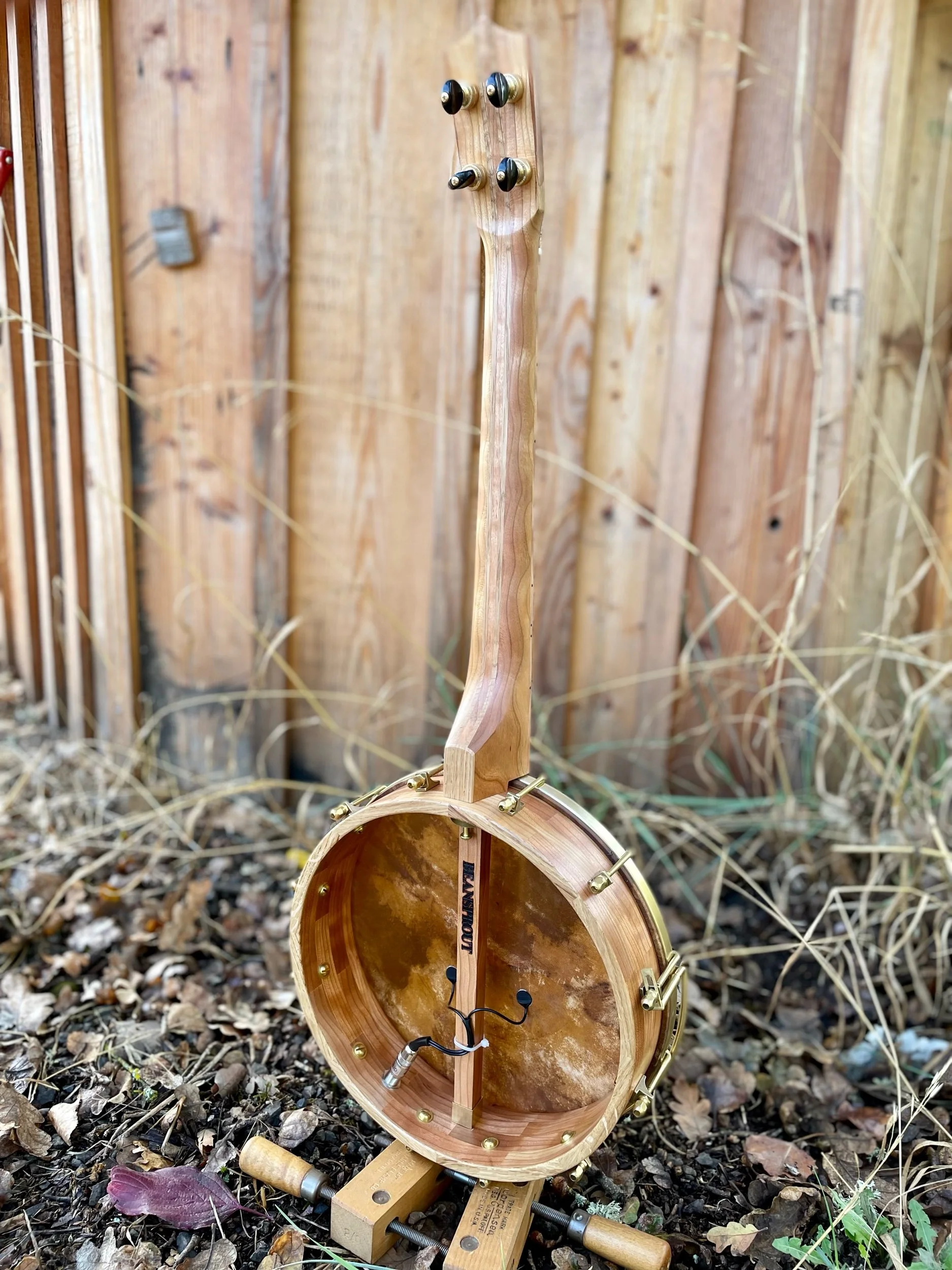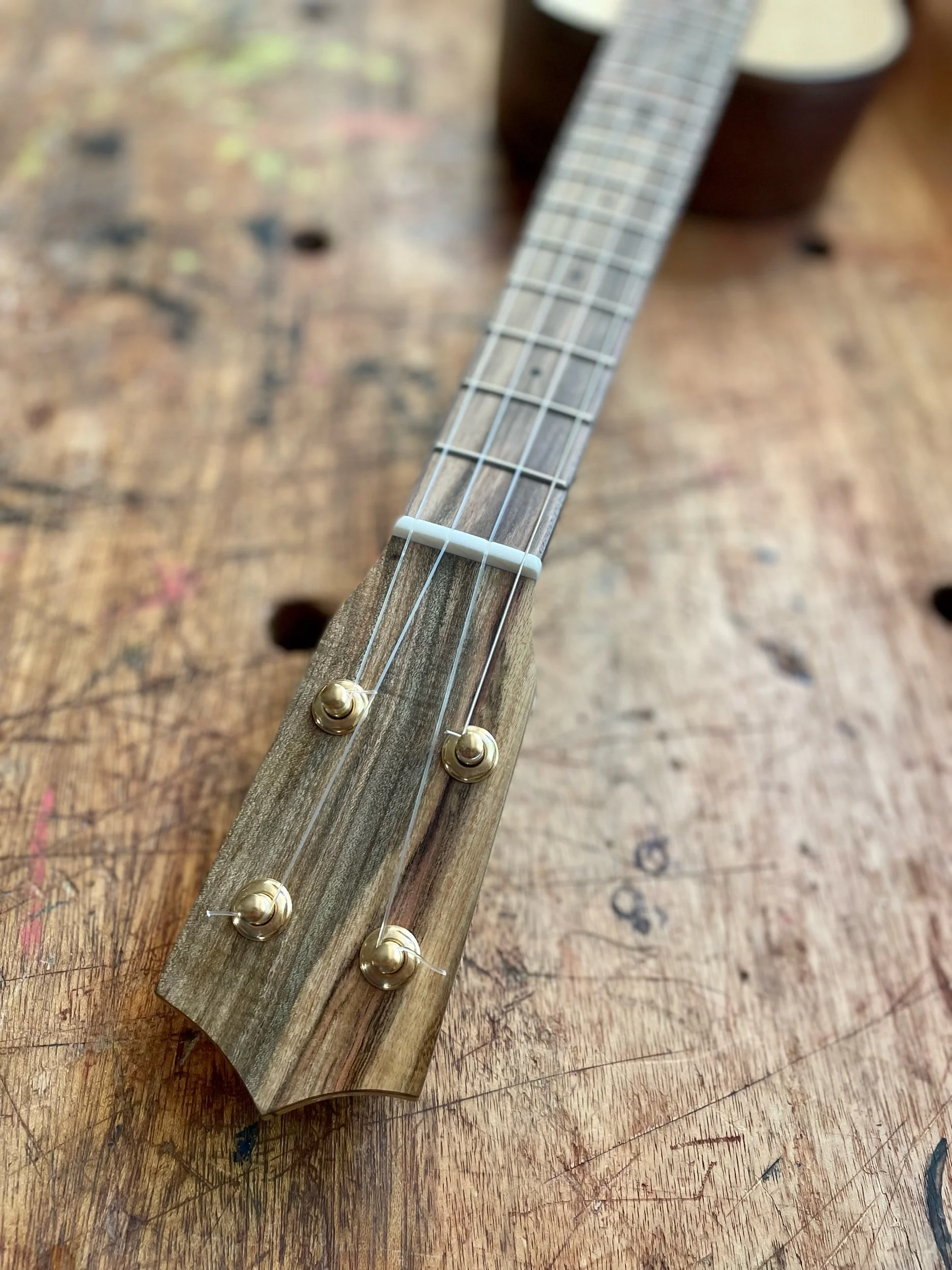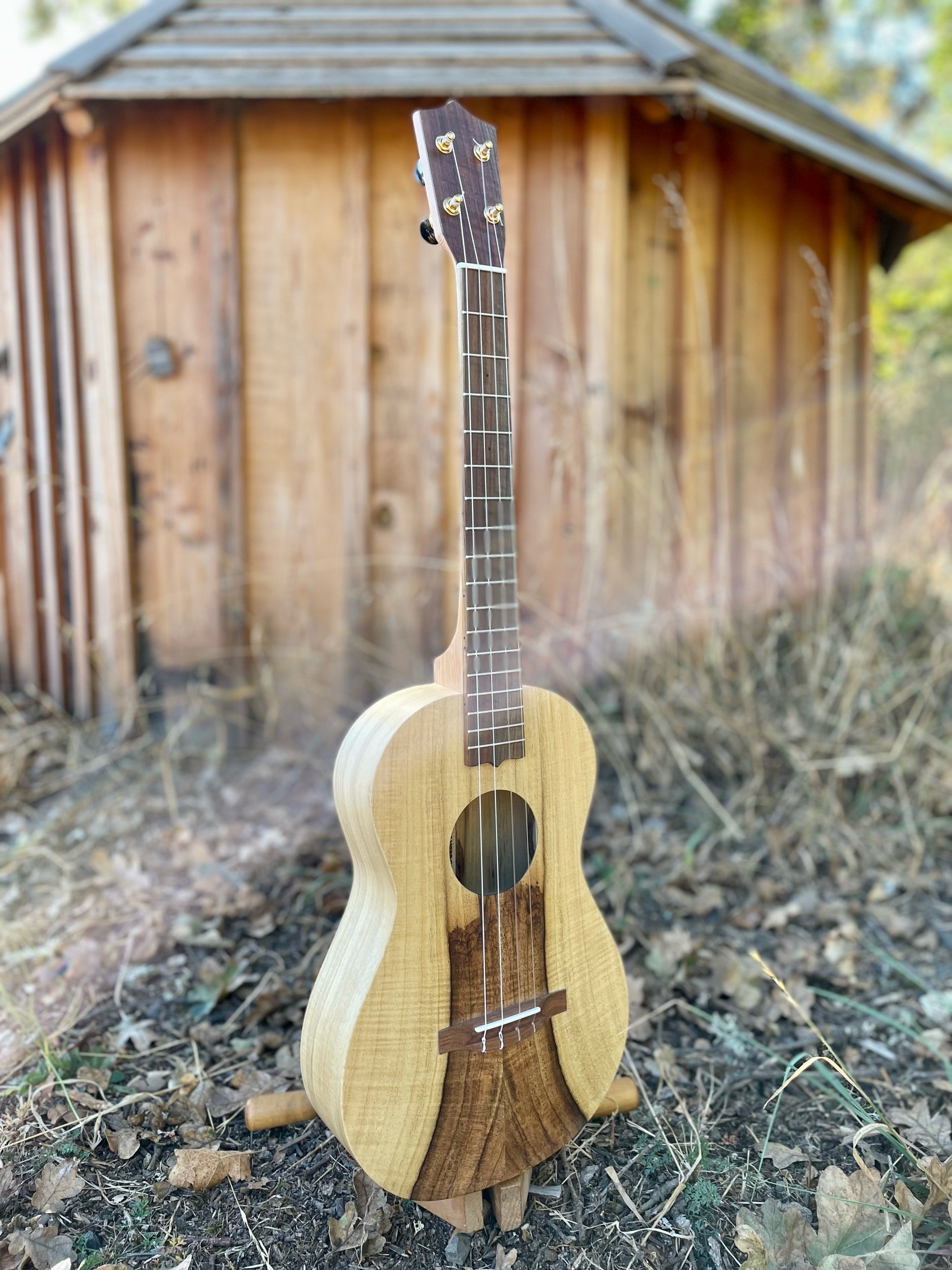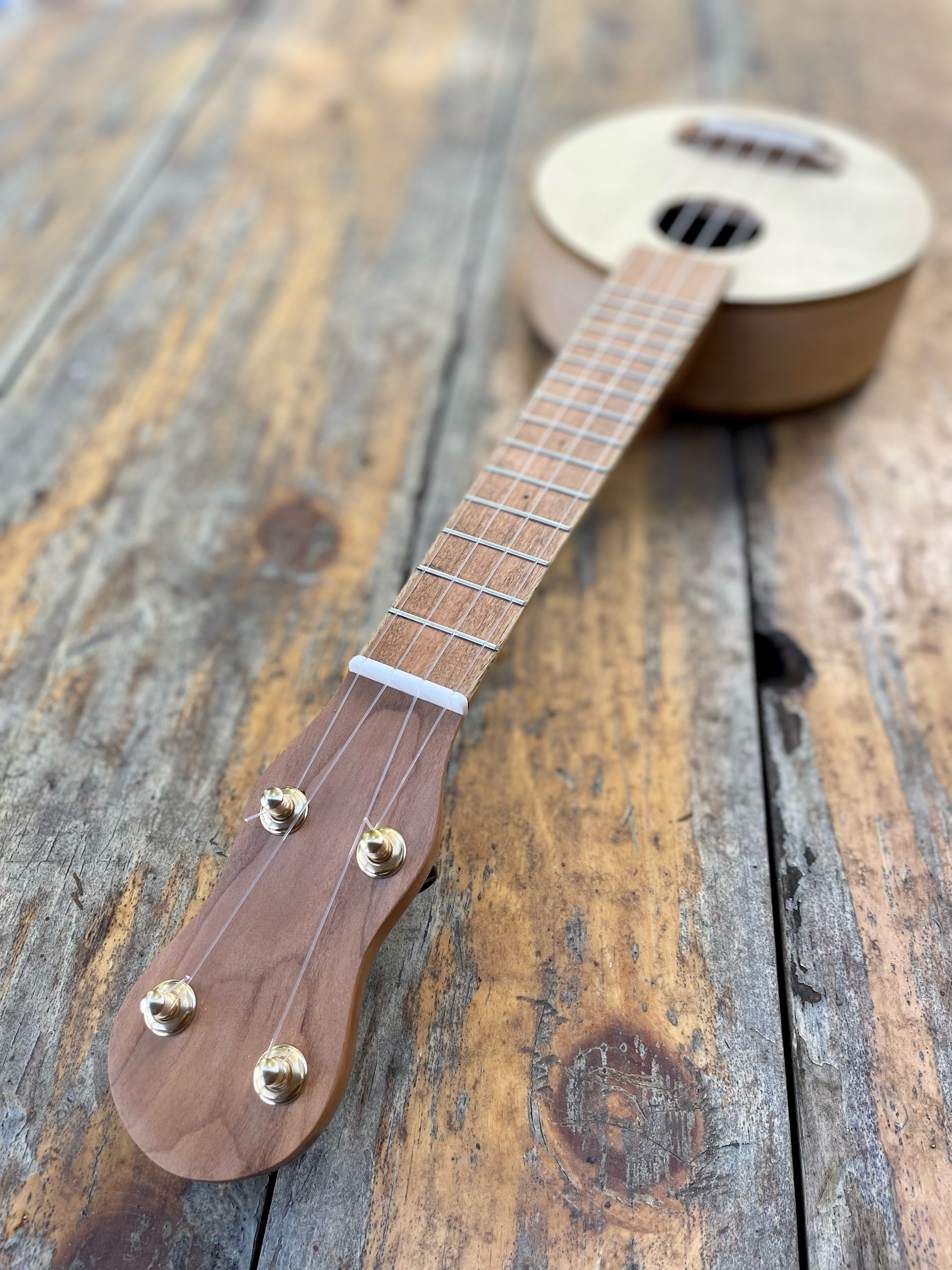Cherry is steadily growing on me as a favorite Banjo wood. I know folks like the dark color of Walnut and the traditional sound of Maple, but Cherry is winning around here. Sweet, loud and growling, it just feels right. This is a short scale Banjo, with an 11” rim and 20” scale. Brass tone ring, goatskin head, non steel strings and an arm rest for comfort. The Cherry is from a retired banjo builder and the Pistachio is from California orchards.
“Aaron, Nicole, and Henry,
The banjo arrived in a beautiful case, safe and sound.
It is everything I hoped for…incredible! I feel so fortunate to have such an instrument. It’s little sister, the mini you made from the same materials minus the brass tone ring, has opened up after lots of play time and sounds great. Very open and bountiful in sound.
This new banjo sounds amazing. You can get many different sounds playing in various right hand positions. I always think that’s a sign of a really good instrument. Getting the “cluck” on this banjo is so easy.
Thank you Aaron, Nicole, and Henry for such a special instrument. You created my dream banjo. It is deeply appreciated and will be played with joy.
- M. A. ”













